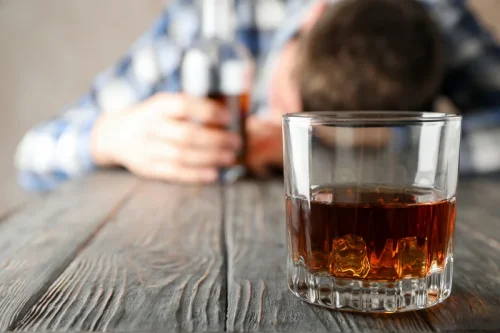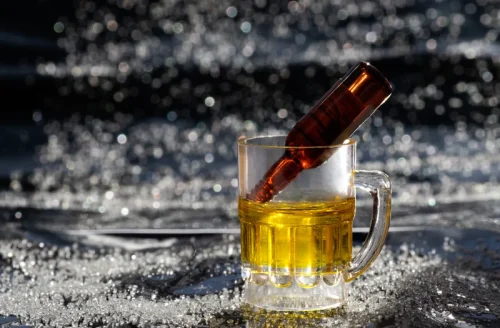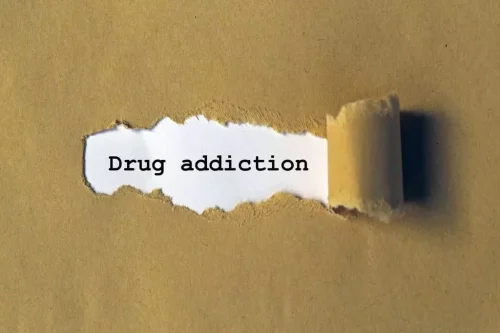
Alcohol Withdrawal Syndrome StatPearls NCBI Bookshelf

Supportive therapies, such as intravenous fluids and electrolyte replacement, may be given to someone experiencing mild to moderate withdrawal symptoms. Still, if you’re experiencing alcohol withdrawal, it’s essential to have your symptoms evaluated by a medical professional. Moderate symptoms of https://ecosoberhouse.com/ alcohol withdrawal may last up to 6 days, whereas severe symptoms may last for 5 to 7 days. While it’s true that up to 50% of people with AUD experience withdrawal symptoms, only a small portion require medical treatment. If you need to quit drinking, don’t let alcohol withdrawal scare you off.
Treatment For Alcohol Withdrawal

Because DTs can happen to people at various drinking levels, the best way to avoid DTs is to drink in moderation or not at all. About 29% of adults in the U.S. will meet the criteria for it at some point in their lifetime. On average, an alcoholic who doesn’t stop drinking can expect to decrease his or her life expectancy by at least 15 years. After about 5–8 days, you’ll notice the intensity of symptoms start to decrease. When you drink, the alcohol suppresses certain neurotransmitters in your brain.
Medication for Alcohol Withdrawal
Many people feel shame or embarrassment asking for this kind of help, but your provider’s job is to help, not to judge. That way, you can reduce your drinking safely and improve your health, well-being and overall quality of life. Complications of DTs treatments largely depend on the treatments you receive. Because there are many different medications and treatment approaches, the side effects can vary widely. Your healthcare provider is the best person to tell you more about the possible complications you might experience after your symptoms improve and confusion resolves. Your provider may also tell loved ones authorized to know and make choices about your care.

Treatment / Management
Techniques such as mindfulness, meditation or gentle exercise might help alleviate stress. However, it’s important to seek medical advice, as withdrawal can quickly escalate to severe symptoms. Continuous monitoring and access Cure for Alcohol Withdrawal Symptoms to medical care are essential. In general, going through withdrawal at home should be avoided unless your doctor recommends it. Alcohol withdrawal symptoms can range from being a slight nuisance to extremely uncomfortable.

People with alcohol use disorder who suddenly stop drinking may also have a spike in an amino acid called glutamate. Glutamate causes some common delirium tremens symptoms, such as a sudden, extreme spike in blood pressure, tremors, severe excitability, and seizures. You are more likely to have DTs if you have moderate or severe alcohol use disorder (heavy or frequent alcohol use even if it causes physical or emotional harm).
- Minor alcohol withdrawal symptoms typically set in about 6 hours after your last drink and may last 4 to 48 hours.
- Some people find that smaller, more frequent meals help if nausea is an issue.
- During the 12- to 24-hour time frame after the last drink, most people will begin to have noticeable symptoms.
- Too much alcohol can irritate the stomach lining, cause dehydration, and lead to an inflammatory response in the body.

Your doctor can also put you in touch with local resources that will help you to stay alcohol free. As mentioned, peak withdrawal symptoms begin at the 24–72 hour mark. If you are not monitored or treated properly, you may enter severe withdrawal, including experiencing DT. Throughout your withdrawal of alcohol, clinicians will continue to use the CIWA-Ar to monitor your signs and symptoms and determine if your alcohol withdrawal is worsening or getting better. You’ve taken an important first step toward recovery by deciding to stop drinking. Now, try to keep in mind that even though withdrawal symptoms may be unpleasant, they’re temporary, and treatment is available during this time.
What Helps With Alcohol Withdrawal?
Symptoms of alcohol withdrawal typically improve within five days, though a small number of patients may have prolonged symptoms, lasting weeks. It is usually difficult for people who drink to be completely honest about how much they’ve been drinking. You should report your drinking history straightforwardly to your doctor so you can be treated safely for withdrawal symptoms.
Hallucinations during withdrawal tend to begin shortly after stopping alcohol use, typically emerging within 12 hours to about 3 days. If you drink enough alcohol to be considered a heavy drinker (especially if you’ve done it for 10 years or more), and you want to stop completely, talk to your doctor. Delirium tremens isn’t curable, but it can be treated to help you manage symptoms and avoid complications such as dehydration. It’s typical for withdrawal symptoms to begin within hours to a day or two after you have your last drink. Symptoms are often at their worst around 24 to 72 hours after you stop drinking.
